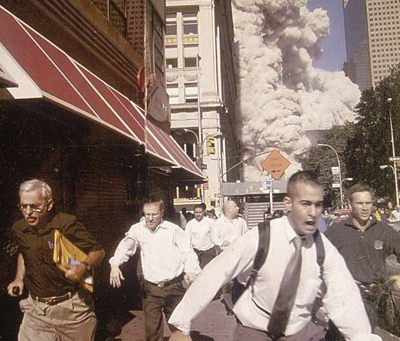
Dr. Yamazaki, in his own words.
I am ninety today as I speak to you, so this is my 90-year perspective on my life in medicine and as a witness to the development of the entire nuclear era.

Could we become an "American Hiroshima?"
On September, 11, 2001 the attack on the World Trade Center revealed our vulnerability to nukes. Would we become an "American Hiroshima?" the media quipped. But when North Korea, on October 9, 2006, announced it had conducted a nuclear test, the shock waves reverberated in all the capitals of the world. Henceforth, we realized, no place on this planet would be safe from nuclear attack.
The news from North Korea turned my thoughts back to June of 1950 when war on the Korean Peninsula threatened to engulf South Korea. I was then in Nagasaki, only five minutes away by jet, where I was sent by the U.S. Atomic Bomb Casualty Commission to study the children in the aftermath of the atomic bomb dropping on that city. The U.S. Occupation Army nearby was mobilized and transported by sea and air to join the South Korean Army. Immediately, they were locked in a fierce struggle with North Korean forces. Ensuing battles of North Koreans and the Chinese Army fighting the U.S., UN, and South Korean forces took place until hostilities ceased in 1953.
During a lull in the Korean battles in early Spring of 1951 the Commander in Chief of the Amphibious Fleet in the Pacific docked in Nagasaki Harbor for three days. I was instructed to brief the Admiral 's staff on the consequences of the atomic attack on that city....
Today, not only the U.S. and North Korea, but China, India, Pakistan, Israel and Iran all have the potential to develop a nuclear weapons program.
An enormous nuclear disaster simmers that must not be allowed to ignite.
Today, six decades into the nuclear ear, we of the older generation must convey to younger and future generations the facts about the nuclear threat to the family of man.
However, secrecy, classification, and delay by world governments and the military to inform the public in a timely manner may lead us to mistakes that that will destroy all living organisms on this planet.
The time to inform ourselves and to act is now.
Yesterday will be too late for the family of man.